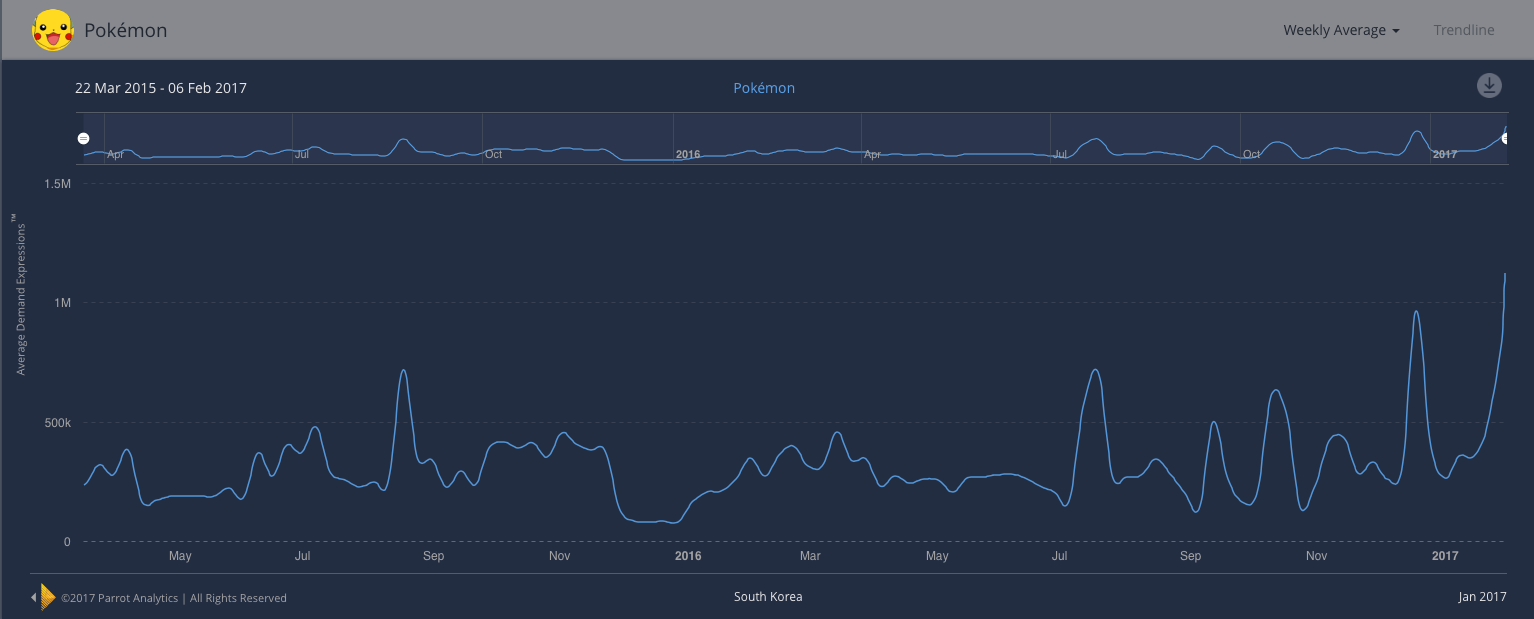By Tony Siu

Pokémon the TV anime series has experienced an increase in demand in the week that Pokémon Go (the mobile game) was launched in South Korea. Furthermore, we speculate that the series’ 170% increase in demand in February to date, compared to the 18 month average, is due to the release of Pokémon Duel.
In December 2016, Pokémon Go finally launched in game-mad South Korea, six months after it was released elsewhere in the world. The delay is said to have been caused by security fears over Google Maps.
The game relies on Google Maps to work, but in most of South Korea, those functions have been limited by the government, which is technically still at war with North Korea, for national security reasons, per a Reuters report (cited on January 24th 2016).
Neither Niantic nor Nintendo have released details on how they have managed to work around the Google Maps challenge. A spokesman for the game’s developer Niantic quoted in the same Reuters article suggested the Augmented Reality (AR) mobile game is using publicly accessible data sources as a workaround.
Pokémon Go has a flow-on effect in terms of demand that spills over into Pokémon the anime series. The latest series, Pokémon: Sun and Moon, begun to be broadcast in Japan on November 17th, 2016. Interestingly, demand has doubled in the week that the game was launched (December 19th to 25th) compared to the previous week (November 28th to December 4th) in South Korea.
Pokémon is growing on South Korean audiences and has now developed a loyal following. Since December, when the game was released, demand for the TV series has spiked significantly, and in February to date, the series’ popularity is now 170% above its 18-month average.
In January 2017 Nintendo quietly released another game based on the popular franchise, called Pokémon Duel. We suspect demand for the TV series will significantly increase as it is immediately available for both iOS and Android in South Korea, due to its longevity, and this game is not restricted by the availability of Google Maps.

